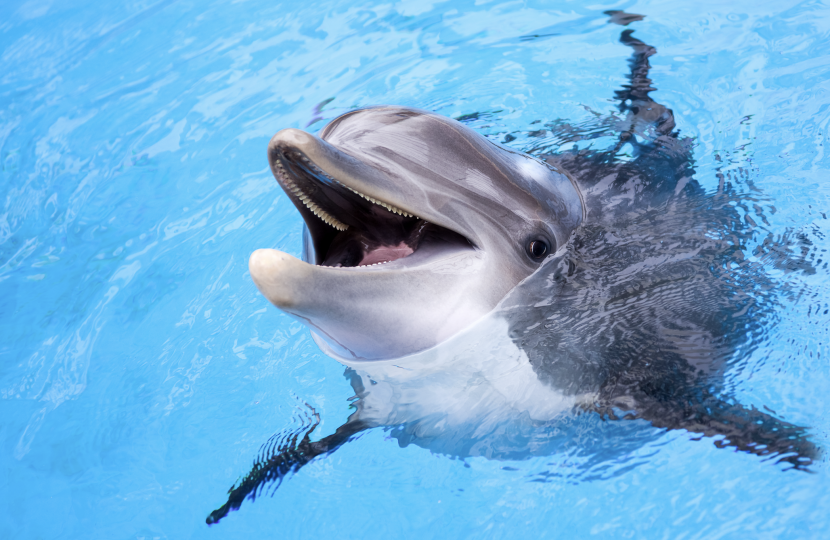
On Friday 14th July, Guy introduced into the Lords the Animals (Low Welfare Activities Abroad) Bill which aims to crack down on the marketing and advertising of so-called "entertainment tourism" and the appalling cruelty to which animals involved in it are subjected.
The full speech can be watched here.
He said that the aim of the Bill "is to steer tourists away from so-called attractions which rely on cruel and brutal practices to ensure the obedience of animals, towards visits to places where animals are cared for and treated properly, with dignity and humanity. This includes Asian elephants, big cats such as tigers and lions, baby monkeys, dolphins and much other marine life. Many of these animals are subjected to unimaginable cruelty in the name of so-called entertainment."
Guy set out what happens to animals who are trained to perform for tourists. "The pattern, whatever the species, is often horribly the same. Taken from their own habitat, on land or sea, infants’ mothers are often killed to capture them. They are kept in incredibly harmful close captivity. They are forced through traumatising fear, pain or drugs into a state where they can be dominated and made to perform unnatural behaviours. They are often callously slaughtered when they are no longer needed for exhibition."
He highlighted in particular the plight of Asian elephants: "These magnificent animals—now an endangered species, which is incredibly dangerous in view of their crucial role in boosting biodiversity, rejuvenating forests and helping combat climate change—are treated with indescribable viciousness to prepare them for tourist activities such as elephant rides and washing. They are snatched from the wild, with their protective mothers often butchered in front of them, subjected to the brutal “breaking of the spirits” through isolation and starvation, then stabbed and beaten with repulsive hooks and sticks before being restrained by tight wire ties that bite the flesh, prevent movement and cause sepsis—all actions that would clearly be punished with the utmost severity if committed in the UK. They are also things of which the tourists who go to see them are almost always unaware."
Dolphins often suffer a similar fate: "The treatment of dolphins is another appalling example of animal cruelty. Activities offered in many tourist venues include swimming with them, interacting with them by touching or feeding them, using them as props for souvenir photographs and selfies, which causes them immense distress, and so-called beaching, the horrible practice where they are trained to propel themselves out of the water on to a stage—a demeaning act that often ends in severe injury to the animal. To prepare them for all this, these highly intelligent creatures are subjected to coercive control, deprived of food to make them respond to training, and kept in confined, featureless tanks that are 200,000 times smaller than their natural home range."
He pointed to the fact that this is not just an issue of animal welfare - but of human safety, too, "as animals treated with such abject cruelty can often themselves become highly dangerous. Asian elephants, when provoked, can attack, often fatally. According to Save the Asian Elephants, at least 700 tourists and others have been killed in the past generation, and 900 more have sustained catastrophic injuries."
In preparing for the debate Guy met Helen Costigan "whose 20 year-old sister Andrea died tragically on a visit to Thailand in 2000 when an elephant, which had been trained in the barbaric way I described, charged her at the Nong Nooch resort. Nearly a quarter of a century on, this cruel and dangerous resort, still with no safety measures in place, is still promoted to unsuspecting tourists by 120 UK-based entities. Helen supports the Bill and is working with Save the Asian Elephants not just to help bring an end to animal cruelty but to save human lives too."
ENDS
The full text of the debate - which received widespread cross-party support in the House of Lords - can be found here and the video of the speech is here.
The text of the Bill (which now goes to Committee Stage in the autumn) and other documents are here
More information about the Charity Save the Asian Elephants is here

